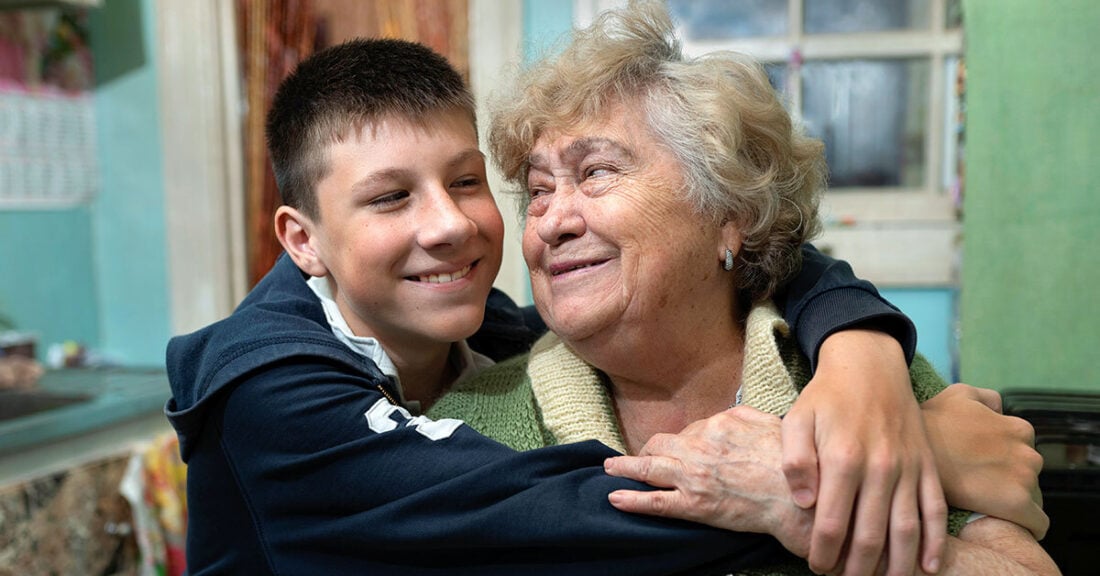Maryland Modernizes Kinship Law to Find Families for More Youth in Foster Care

Maryland Governor Wes Moore signed legislation in May 2024 that is the cornerstone of the state’s shift to a kin-first culture in child welfare. For youth experiencing out-of-home care, the new law establishes a preference for living with relatives, including family by choice.
The law modernizes Maryland’s child welfare system by removing outdated language that excludes contemporary concepts of family and updating state regulations to reflect how families are formed today. When considering the best interests of children who require out-of-home care, Maryland’s kin-first approach prioritizes adult-child bonds that are critical to healthy development. The new law directs child welfare staff to identify kin as a preferred placement for children who enter state custody.
When children experience out-of-home care, keeping them connected to their families, communities and cultures and increasing the pool of possible caregivers are top priorities for Maryland Secretary of Human Services Rafael López.
“When a child must experience out-of-home care, whenever possible they should be with kin who love them and can provide the stability of a family, community and culture,” López said. “Research proves that kinship care minimizes trauma and improves outcomes for children in foster care.”
Who Can Be a Kinship Caregiver in Maryland?
In Maryland, a kinship caregiver is:
- an individual who is related to the child through blood or marriage, adoption, tribal law or custom, or cultural custom or practice;
- an individual who is unrelated to the child but has a strong familial or significant bond with the child; or
- a person identified by the child’s parent.
Maryland’s law recognizes the diversity of modern family relationships and the critical contributions of community and culture to a child’s well-being. Before the new law, Maryland treated family relationships, such as godparents, family friends, mentors and neighbors, as if they were strangers to the child. The new approach recognizes that families maintain a variety of extended, healthy, cultural and community bonds that support a child’s well-being and is based on evidence that children are better off when placed in those relationships than in institutional settings or with non-relatives.
Listen to our 2017 interview with López
If a potential kinship caregiver cannot be located, the new law requires staff to seek a family-based foster home that most closely meets the needs of the child. Caseworkers must consider the child’s culture, language, developmental and educational needs, and the placement’s distance from the child’s home, siblings and extended family.
Why is Maryland Expanding Kinship Care?
“Our data increasingly reveal that Maryland children are missing out on the opportunities kinship care provides, which include ensuring children maintain critical, permanent connections to family and community when youth require out-of-home placements,” López shared with legislators. “Only 23% of Maryland children in foster care were placed with kinship caregivers as of January 2024.”
Kinship care constitutes an increasing share of all foster care placements nationwide. The Annie E. Casey Foundation funded a national survey examining state kinship care policies in 2022 and recently published the findings in 2024’s Family Ties. From 2007 to 2021, kinship placements of children and youth ages birth through 17 have increased by 10%, the study reported.
“Maryland’s changes are in line with policy reforms occurring in many states over the past 15 years to prioritize kin caregivers — and these are beginning to reshape how children and youth experience foster care,” said Todd Lloyd, a senior policy associate at the Foundation.
Research shows children placed with relatives are more likely to:
- feel loved and accepted compared to those placed in institutional settings;
- benefit from connections to siblings, culture, community and familiar activities;
- have better outcomes for well-being and behavior;
- experience improved chances for reuniting with parents; and
- stay in a stable placement without multiple moves.





